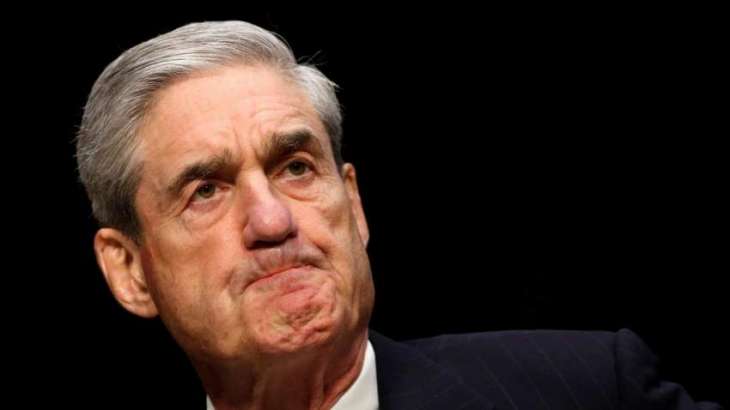Victory for the Democrats in next week's midterm elections would represent a serious blow to US-Russian relations and could ultimately lead to an intensification of Special Counsel Robert Mueller's investigation, analysts told Sputnik.
WASHINGTON (Pakistan Point News / Sputnik - 01st November, 2018) Victory for the Democrats in next week's midterm elections would represent a serious blow to US-Russian relations and could ultimately lead to an intensification of Special Counsel Robert Mueller's investigation, analysts told Sputnik.
On November 6, US voters will cast ballots in the midterm congressional elections to fill 435 seats in the US House of Representatives and one third of the 100-member Senate. Although the Republican Party currently controls both chambers of Congress midterm polls reveal that the Democrats may be poised to recapture the House, which would leave the country's legislative branch divided along partisan lines.
Mueller's probe into foreign election-meddling has intensified over the past couple weeks, a notable development given the midterms loom. On October 19, the Justice Department said it charged a Russian citizen Alekseevna Khusyaynova for allegedly conspiring to interfere in the 2018 midterm elections.
And, last week, Mueller investigators reportedly questioned several former senior White House officials to determine if WikiLeaks coordinated with the Trump campaign on the 2016 release of Democratic National Committee (DNC) emails.
On Wednesday, US President Donald Trump told reporters he has not received a subpoena from Mueller's office over the incident, as reported by the Politico news outlet, which claimed the president was in a legal battle with the special counsel.
Moreover, US Democratic Congressman Adam Schiff told CNN in early October that the House would escalate the probe into Russian financial dealings with the Trump business organization should his party prevail on November 6. It is worth noting how the previous House probe was under a Republican majority intelligence panel, many of whom agreed with Trump that the Democrats and Mueller were engaged in a witch hunt.
Hamline University Professor of Political Science David Schultz told Sputnik that a divided Congress would spell doom for the final two years of Trump's first term.
"Democratic control of the House and... the special prosecutor's investigation will be a potent problem for Trump," Schultz said. "From a legislative perspective, a Democratic victory may effectively bring to an end the Trump presidency."
However, the picture becomes a bit murkier with respect to the impact of a Democratic House victory on the conduct of foreign policy, Schultz acknowledged.
"Foreign Policy-wise, it is not clear how a change in party control will affect Trump's power internationally, but he will face limits on funding to do things such as build his wall with Mexico or take some other actions that require congressional support or at least acquiescence," Schultz said.
Eurasia Center Vice President Earl Rasmussen told Sputnik that Republicans losing the House would mean Mueller's probe would continue to haunt Trump.
"If Democrats win the House as projected we may see the investigation linger somewhat longer," Rasmussen said.
According to American University in Moscow President and Founder Edward Lozansky, the converse holds true if the Republicans can prevent the Democratic onslaught and save their majority in both chambers of US Congress.
"[Saving their majority] would also help Republicans to strengthen the case for rapping up the Mueller investigation," Lozansky told Sputnik.
Most members of the US Democratic Party because of suspicion of Russia's involvement in Trump's election have been aggressively pursuing ways to punish Moscow since the New York billionaire took office in 2017. If they are given more power in Congress it is easy to imagine some of the implications including a push for even more rounds of sanctions.
Meanwhile, just as it appears the Democrats are about to retake the House, the Trump Administration is trying to make some headway in relations with Moscow.
US National Security Adviser John Bolton during a panel discussion on Wednesday said Trump believes "sustained diplomatic engagement" with Russia is necessary. Trump and Russian President Vladimir Putin are set to hold brief talks in Paris on November 11, Bolton said, where they may discuss issues like arms control and the middle East.
With that said, in the light of rising tensions over election-meddling allegations, the Ukraine conflict, the war in Syria, the Skripal case, among other issues, many astute onlookers believe relations between Moscow and Washington have hit an all-time nadir with some even pining for the good old days of the Cold War.
Lozansky, however, believes things will only get worse if the Democrats are victorious next week.
"If we believe the current polls after November 6 the state of US-Russia relations would sink even further despite the current thinking that they already reached the bottom," Lozansky warned.
On the other hand, if Republicans are able to continue control over both chambers, that would give Trump more room for maneuver in conducting his foreign policy, Lozansky pointed out.
The US president, Lozansky added, will also feel less pressure to constantly try and prove that he is tough on Russia.
Rasmussen also expressed pessimism about the future course of bilateral superpower relations.
"I do not see an improvement any time soon in US-Russia relations. Political situation does not help," Rasmussen said. "Hopefully it will stabilize."
Rasmussen added that there was still uncertainty as to exactly what new economic sanctions would be imposed on Russia after the midterm elections. The outcome of the elections may determine that, he said.
Lozansky, however, drew attention to the fact that Trump was able to prove the polls wrong in 2016 in his shocking presidential election victory.
"So there is a small chance that we will witness another miracle, but I'd not count on this too much," Lozansky concluded. "Miracles do not occur too often."




